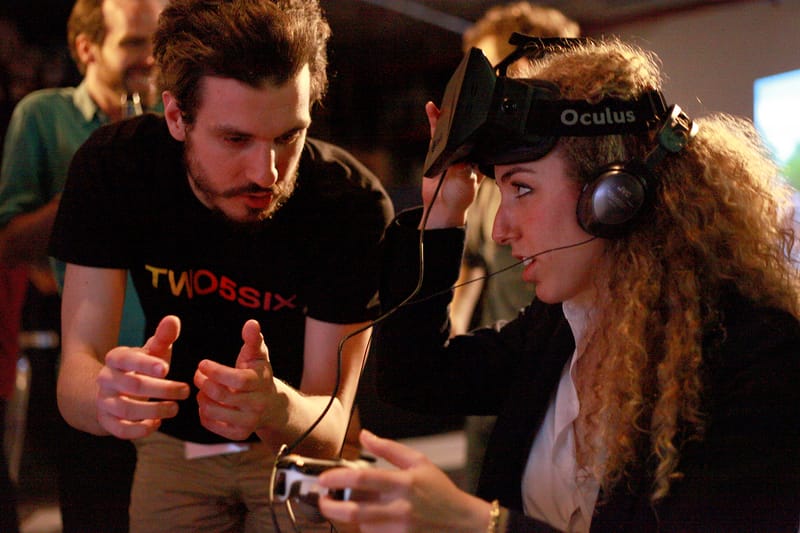I just broke down crying.
Minutes earlier, my wife was falling asleep on the couch, our cat sprawled out on the rug licking her paw too much, while the TV weatherman pointed to a graphic filled with cartoon thunderbolts. I checked my phone. A lone message from my editor: You want to write something about Iwata?
Oh no. Oh no oh no.
///
Two years ago I celebrated the life of Nintendo’s third president, Hiroshi Yamauchi, in a short remembrance that began with a series of jokes. “They say he could stop time by staring at his watch and scowling,” I wrote, the first in a sequence of faux-legends I made up about the man, given his reputation for inducing fear and awe in those who knew and worked with him. Yamauchi was 85 when he died; he had been out of the spotlight for over a decade. In 2002 he turned his company over to Satoru Iwata, the fourth president since 1889 and the first to not share the Yamauchi bloodline. Thirteen years into a tenure that saw him shepherd both Nintendo’s boldest successes and failures, Mr. Iwata has died, from complications stemming from his fight with cancer of the bile duct, and I have nothing funny to say.
Iwata was a programmer whose coding brilliance saved projects from the scrapheap. As a manager and leader, his brilliance remained, anchored by a humble deference to those who came before but also a willingness to strike out deep into unknown territory. He opened a window into Nintendo’s great and mysterious inner workings with a series of developer interviews called Iwata Asks; the public, long asked to simply play Nintendo’s games, could now read conversations between the president of the company and the creators of those games, and the results were not the micro-managed PR stunt you’d expect but a rich, insightful conversation among peers. There was always plenty of laughter. Not today.
I feel physically sick with grief. And if you do, too, it bears considering why this is.
I honestly did break down before sitting down to write this. And I don’t know why. I pulled myself together, started typing, then moments later felt that warm blur working its way behind my eyes and my vision clouded over and a few more tears fell. I’m now sniffling away the residual moisture that drained down my nose cavity. And I know I’m not the only one.
In the hours since Nintendo released a brief note acknowledging the untimely death of their president, over five-hundred thousand Iwata-related tweets were sent. Nintendo’s system-based social network, Miiverse, has been inundated with portraits and remembrances of the company’s president, drawn and typed out by those who otherwise would be playing games on their Wii U or 3DS. But what I don’t fully understand is why I, and others, feel a personal connection to this man, and the reciprocal sense of profound loss, when most of us have never even met him.
I wrote the eulogy for my grandmother when she passed away in June 2013. A week prior, my wife and I stood at her hospital bed, returning to her a family heirloom she had loaned to us, the engagement ring from my grandmother’s beloved sister. Lying down, tubes in her nose, my grandma still sensed the opportunity for wit: As my wife held out the ring to her, she said with a flourish, as if accepting the proposal, “I will!” I spoke about that moment in my eulogy, and the thirty-two years of memories I had with her, and I cried.
But I didn’t know Satoru Iwata. He was the president of a company. I use their products. The distance between him and me is so unfathomably wide. Yet I feel physically sick with grief. And if you do, too, it bears considering why this is.

My hunch is that my previous claim, that “I use [Nintendo’s] products,” is grossly inaccurate. The deceit hides in that verb: “use.” We don’t use videogames. We play them. Iwata, long before he managed and presided over this company, made these games. For those of us who grew up with Nintendo, and who continue to cherish their stubborn commitment to creating experiences that are, above all else, fun and weird and alive, Iwata became a stand-in for the company and their legacy.
We interact with these movable worlds and we feel new, or young, or challenged, or confused, or angry, or elated. When the father-figure of that fun is cut down, we react in kind. I never shook his hand. But it doesn’t matter, because he’s held out his own to us so many times, those two static limbs, a gesture forged in formality but pulled off with a mischievous wink: We were both in on the game.
Last summer, Iwata had surgery to remove a growth in his bile duct. My father is a cancer surgeon. I know cancer is not a good thing to have anywhere; I knew it was especially bad to have it there. When he came back to the public eye, he looked slimmer than usual. This year, he did not attend E3, the largest videogame industry event in the world. He said he could be more productive back home, in Japan. During Nintendo’s video presentation, where they unveiled to the world their newest games, Iwata did in fact show up, but as a puppet created by The Jim Henson Company. How perfect and heart-wrenching, then, that a man who gave his life over to games would perform his last public appearance as a toy.
Muppets creator Jim Henson died months before turning 54. Iwata was 55. Both were geniuses we lost too young. Both left in their wake an industry changed by their daring. More importantly, they left people happier. Maybe that’s why, when I learned he was gone, I felt immeasurably sad. I still do. I still don’t know why. But I already miss you, Satoru Iwata.





